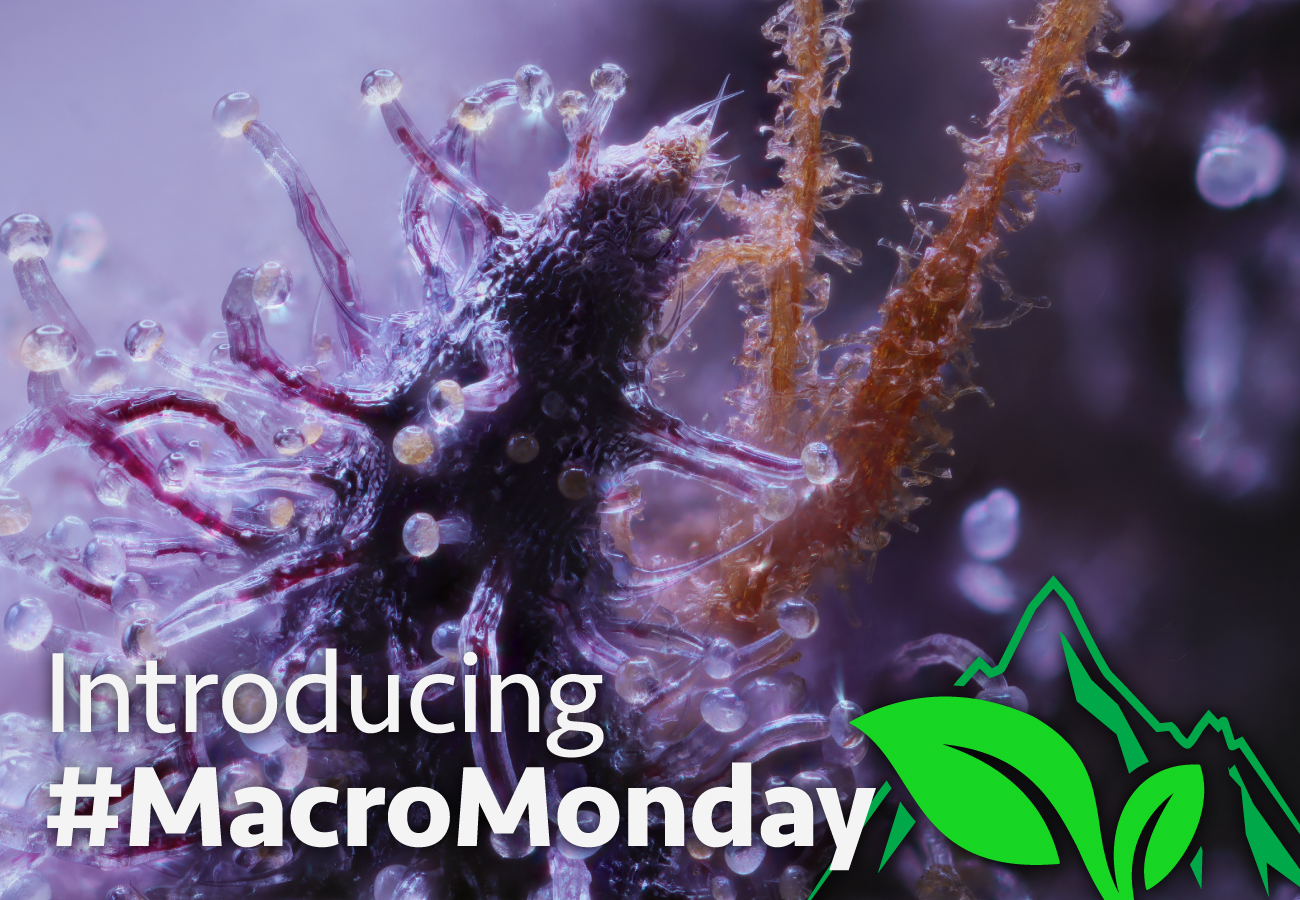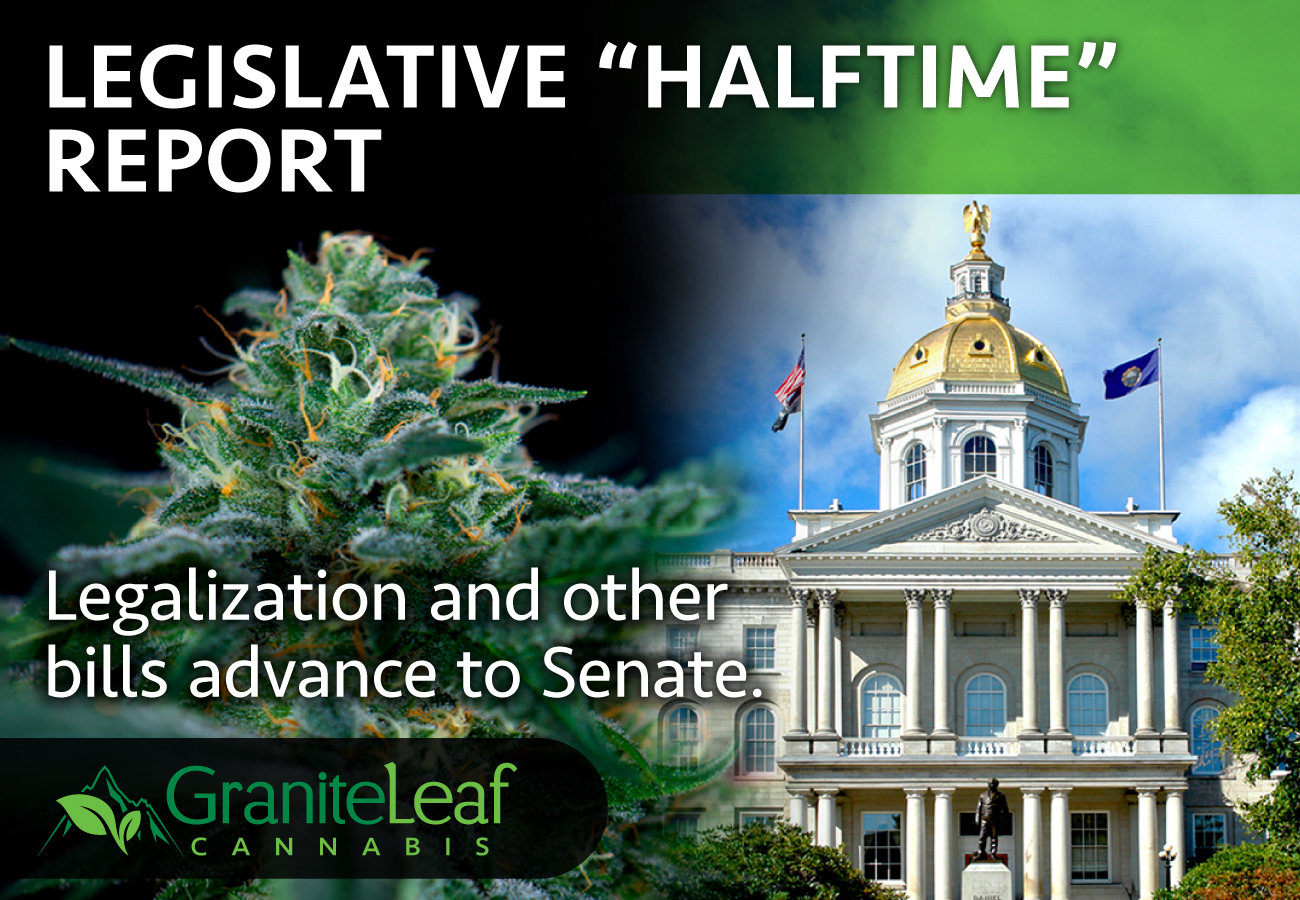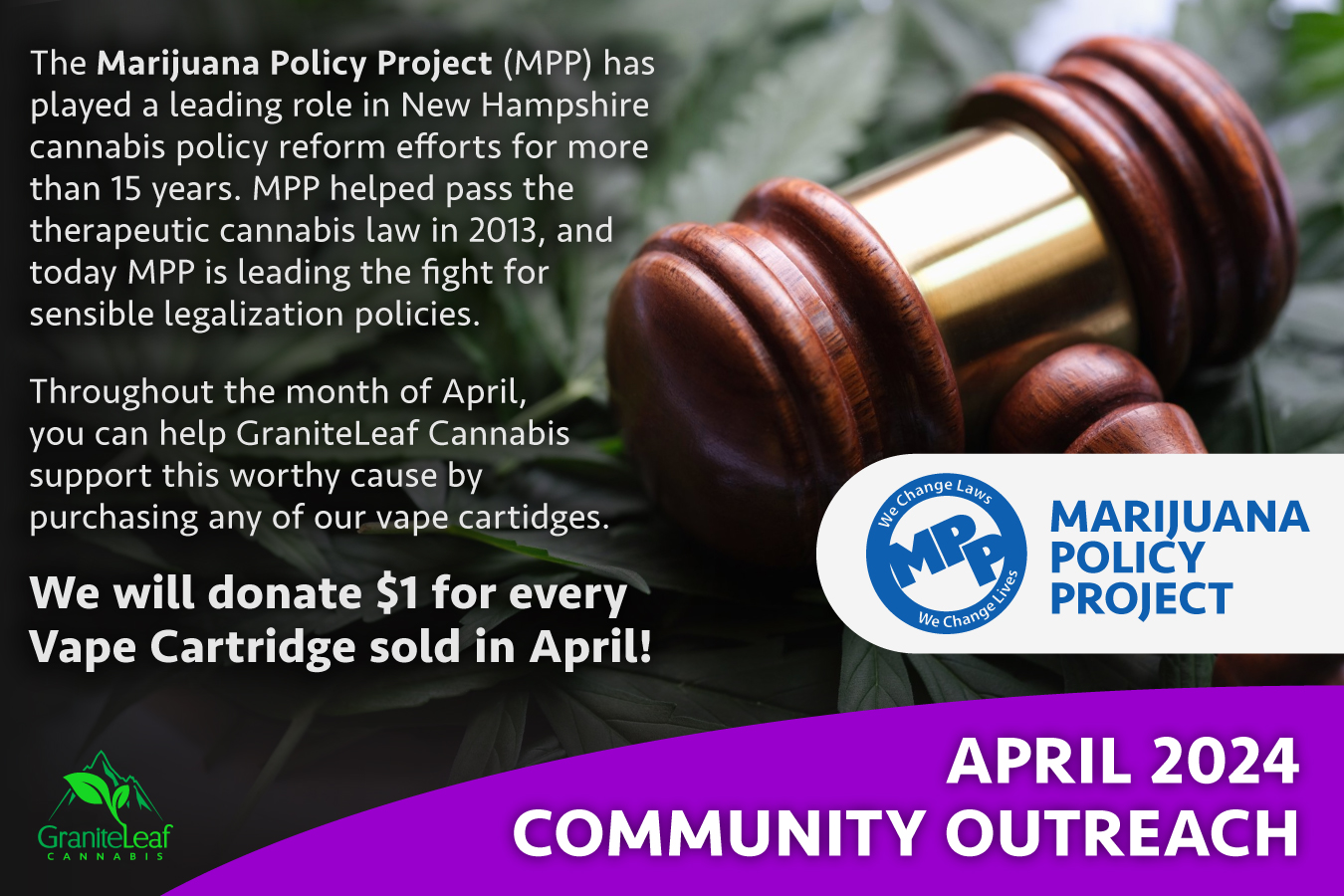This message is intended for all who care about New Hampshire’s Therapeutic Cannabis Program and the future of cannabis policy in our state.
Governor Sununu’s recent announcement that he would sign legislation establishing a state monopoly for cannabis has created a frightening situation for the ATCs who have pioneered legal cannabis in New Hampshire. WMUR reported that there’s a chance this could happen within the next few weeks via an amendment to existing legislation:
“Lawmakers already hammered out a version of state-control legalization last year. If they are able to amend one of this year’s bills to add that, the governor said he would sign that legislation.”
WMUR, May 12
If you’d like to view the governor’s full interview on WMUR’s Close-Up, it is available here.
On one level, it is very encouraging to hear the governor finally adopt talking points in favor of legalization and regulation. Gov. Sununu is correct when he says that regulation of cannabis would reduce harms associated with illicit drug markets. Unfortunately, we believe it is very unlikely that last year’s bill (HB 1598) would have created a functional market for adult-use cannabis.
As a reminder, HB 1598 barely squeaked through the House in 2022, and it received zero votes in the Senate, despite the issue’s overwhelming popularity. Many legislators who support legalization voted against this bill because they knew it was seriously flawed. Among other problems, they understood that the plan threatened the viability of the Therapeutic Cannabis Program. In contrast, this year’s HB 639 fared much better in the legislature, passing with more than 70% in the House and receiving 10 votes in the Senate.
Four Problems with HB 1598
Here are four serious problems with the approach taken by HB 1598:
(1) No state has ever tried to operate a cannabis business in violation of federal law.
New Hampshire could become the first state to attempt the risky experiment of having state employees sell cannabis. Experts on cannabis law have warned that it likely will not be possible to implement HB 1598 until federal law changes, which could be many years down the road. Other states have considered this option and rejected it after learning more about the legal hurdles. Last year, our allies at the Marijuana Policy Project urged legislators to include a “Plan B” in HB 1598, allowing private sales if state sales don’t materialize, but this idea was firmly rejected.
Nobody can be certain how the legal conflicts would play out if this type of policy was enacted. However, it would be irresponsible to dismiss this serious concern.
(2) Even if the bill does get implemented, the federal ban on interstate commerce would likely prevent New Hampshire from developing a functional market.
Our state liquor stores are popular because they offer an outstanding selection of products at affordable prices. Whether you prefer French champagne, Jamaican rum, Japanese sake, or Kentucky bourbon, you can find it all at a state liquor store. This is possible because the Liquor Commission is able to purchase these products in bulk from a robust international market. In stark contrast with liquor markets, cannabis markets must be entirely intrastate – this means everything sold in New Hampshire would have to be grown and produced by New Hampshire businesses that would be licensed by the Liquor Commission.
So who would grow cannabis and produce cannabis products to supply this very restrictive market? There are currently only three cannabis businesses in the state, and they are small non-profits (the ATCs). So the success of this plan would require a great deal of investment and participation from new businesses. But what business would choose to enter a “market” where there is only one legal buyer? If growers or processors don’t like the prices being offered by the state, under HB 1598 it would have been a crime for them to sell to any other entity. This sounds like a recipe for potential disaster.
If businesses and entrepreneurs are afraid to participate as growers or product manufacturers, there won’t be much cannabis for the state to sell. Meanwhile, neighboring states have created flourishing markets that more closely resemble our craft beer market, with hundreds of small growers and producers focusing on producing “craft cannabis.” If New Hampshire truly wishes to compete with neighboring states, it should adopt policies that incentivize craft cannabis over corporate cannabis.
Looking down the road, the only way a state monopoly system could hope to compete with neighboring states on quality is if federal policy changes and interstate commerce becomes legal. This would allow the state to purchase in bulk from states where cannabis can be grown more cheaply and efficiently. But interstate commerce could be many years down the road, and it would be irresponsible to assume it will happen soon.
Additionally, this potential future development – state-run stores selling cannabis from states where it is cheaper and easier to grow – would come with another huge downside: it would devastate New Hampshire growers and eliminate economic opportunities. In this scenario, all economic benefits would be monopolized by the state, and nearly all cannabis jobs would be in the state-run retail sector. Meanwhile, neighboring states will continue to offer a broad range of economic opportunities in the cannabis retail space, incentivizing talented young people to continue leaving New Hampshire for greener pastures.
(3) If state-run stores begin selling tax-free cannabis, this will seriously threaten the viability of the therapeutic cannabis program and the non-profit ATCs who provide cannabis to patients.
New Hampshire’s ATCs are required to be non-profits. But since the IRS does not recognize cannabis businesses as non-profits, this status confers few benefits and imposes many disadvantages.
HB 1598 would have allowed large for-profit businesses to operate in New Hampshire, but it would not have allowed ATCs to become for-profit. This would be incredibly unfair and would put ATCs at a tremendous disadvantage relative to other potential suppliers of the state control system.
The Therapeutic Cannabis Program has already reached a point of stagnant growth, in part because cannabis is now available across the border in retail stores that don’t require patients to register with the state. If news reports begin suggesting that tax-free cannabis is coming soon to N.H., this will further reduce incentives to register for the program. A decline in patient registrations would decimate the ATCs if they are not able to participate in the adult-use market.
The ATCs have been dispensing cannabis and complying with strict regulations for more than six years without creating problems for society or generating negative headlines. Prime ATC in particular has raised tens of thousands of dollars to support charitable organizations. We think it’s reasonable to ask that ATCs should be treated fairly in this process.
(4) More broadly, cannabis legalization should be about freedom and justice, not merely state control.
Successful cannabis legalization policies strike an effective balance between two important goals: (1) expanding personal freedom for adults and (2) establishing responsible regulations to reduce harms. Unfortunately, HB 1598 did not include home cultivation or a plan to expunge past records for cannabis offenses. Instead, the emphasis was almost entirely on establishing state control, with little emphasis on freedom and justice. We would strongly prefer to see a more balanced approach to cannabis policy in New Hampshire.
So What Should Happen Next?
In the days following the governor’s change of position, key senators have said they don’t want to rush a bill to the governor’s desk without proper vetting. Instead, some have said they want to see the bill go through the full legislative process in 2024. Although we appreciate the House’s sense of urgency to end cannabis prohibition as quickly as possible, we are asking all representatives and senators to maintain focus on making good policy.
Does this mean we think our allies in the legislature should do nothing in the final weeks of this session? Absolutely not! If HB 431 (home cultivation for registered patients and caregivers) is rejected by the Senate this week, we would love to see the House attach that bill to other legislation and send it back to the Senate. We would also love to see an amendment that simply legalizes possession for adults, perhaps setting up a study process to develop an adult-use regulation bill for next year. These alternatives seem much more likely to succeed than a late-session attempt to resurrect HB 1598.
There is no good reason that home cultivation should be a felony, and there is no good reason that adults should be fined or arrested for simple possession. But there is also no good reason to adopt a flawed cannabis regulation plan without proper vetting. We strongly believe each of these issues should be considered separately on their own merits.
How Can You Help?
Thank you for reading this lengthy blog post!
If you’d like to share your thoughts on cannabis policy priorities with your elected officials (whatever your thoughts might be), now would be a great time to do so. You can find their contact information here.








2 Responses
Please remember that medical-approved and licensed patients should be exempt from taxation if the new State selling stores become approved.
Thank you for all this great information! It’s always beneficial to know all the accurate information .